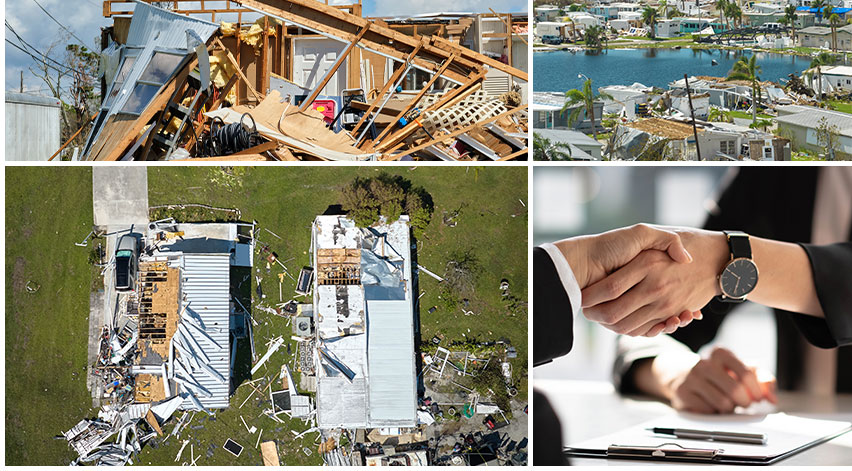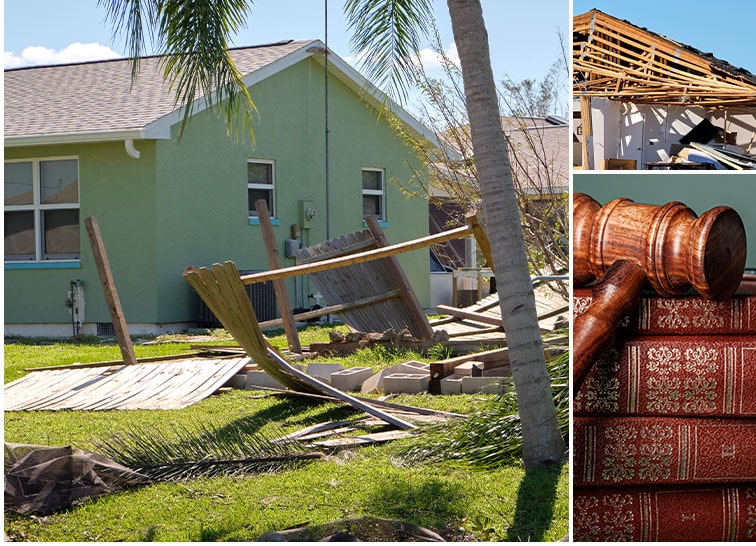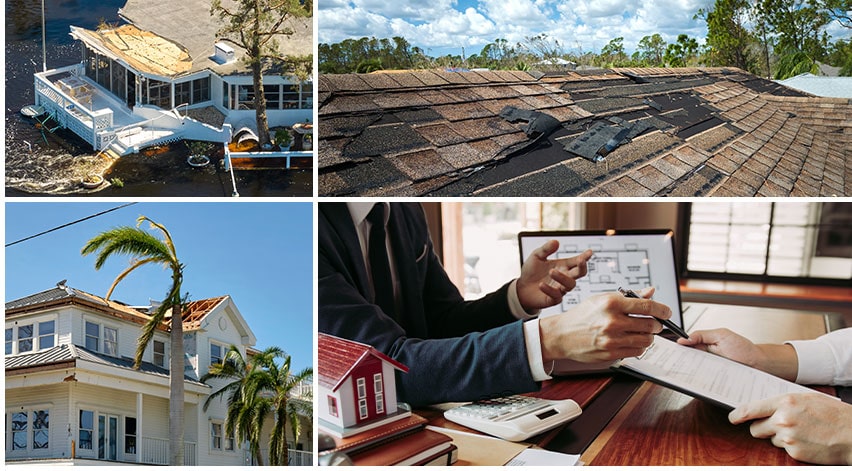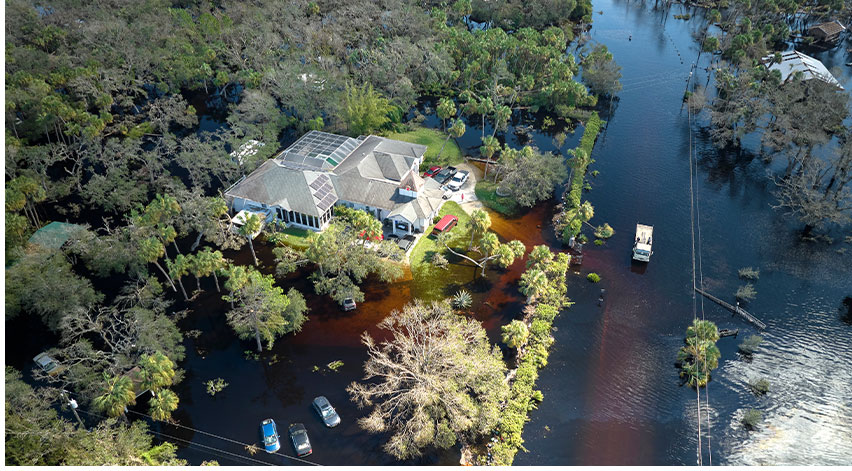PROPERTY DAMAGE
Property owners have dangers lurking in every corner that can jeopardize their vital assets. Recently, Florida’s Category 4 storm, Hurricane Ian, obliterated houses, apartment complexes, condominiums, businesses, and more. The state’s insurance industry is bracing itself for thousands of individuals to file claims through their first-party insurance policy. Yet, it can be challenging for you to determine the exact value you should receive to rebuild and recoup your losses. Your insurer may even delay, underpay, or deny your claim in some instances.
Your Property Can Sustain Damage in Many Ways
Nearly all regions of the United States face some type of environmental catastrophe. The Southeastern wrestles with powerful hurricanes and flooding, the West battles raging wildfires, the Midwest deals with tornadoes, and so on. When these natural disasters strike, human beings and their property are at their mercy. The extensive property damage caused by Hurricane Ian displaced over 40,000 individuals. With countless victims suffering hurricane-related property damage, storm-related damage projections range from $28 billion to $47 billion.
During a hurricane, your property undergoes severe trauma. Although intense winds contribute to your property damage, other hurricane conditions factor into the impact on your home. A hurricane not only consists of strong winds but typically unleashes destructive floods and storm surges. These combined circumstances can result in windstorm, water, flood, and mold damage. If your home suffers a combination of these damages, it can further complicate your insurance proceedings. Since we have limited control over how we fare during these circumstances, many people hope to secure assistance through their insurance policy.
What Is a First-Party Insurance Claim?
A first-party insurance claim is when the insured files a claim with their own insurance company. Meanwhile, a third-party insurance claim occurs when someone files a claim with the insurance company of someone who caused the accident. Third-party insurance claims typically apply to motor vehicle accidents. If a hurricane wrecked someone’s home, that person would likely file a claim with their insurance company to pay for repairs and damage.
What Should I Do If I Suffered Property Damage?
You must document as much as possible regarding your property damage. If your property was damaged, you should:
- Extensively document the damage through photographs, videos, and logs.
- Contact your insurance company to notify them that your property was damaged.
- Review what your specific insurance policy covers.
- Prevent further property damage by tarping your roof, removing flood water, and boarding up shattered windows.
Why Might I Need a Lawyer for a First-Party Property Damage Claim?
There are various forms of coverage depending on your particular situation. The location of your property may factor into what specialty insurance you choose or are required to carry. For example, a standard homeowners policy covers windstorm damage but not flood damage. Instead, homeowners and business owners must have flood insurance separate from their standard policy.
When you turn to your insurance company for property damage, it can be difficult to discern how much you are entitled to. These contracts are often lengthy and complicated, so your insurance company may attempt to take advantage of you. All in all, insurance companies are for-profit organizations. Therefore, although you have sufficient coverage, your insurance company may not uphold it.
If an insurance company refuses to pay the proper compensation for property damage to the policyholder, it is acting in “bad faith.” The law mandates that insurance companies honor the policy and fairly compensate the insured for property damage. Examples of an insurance company dismissing its obligation and acting in bad faith include:
- Unjustly denying a claim.
- Ignoring or waiting to address a claim.
- Settling a claim for a low amount.
- Requiring unnecessary documentation.
- Employing intimidation techniques or using threats.
- Failing to provide a reasonable explanation for denying the claim or the offered underpaid amount.
A lawyer can help you with your first-party property damage lawsuit if you suspect your insurance company is acting in bad faith or want to fight a denied claim.
How Can a Lawyer Help My First-Party Property Damage Lawsuit?
We advise that you consult a lawyer who has experience contesting insurance companies. A lawyer will closely examine the facts of loss that led to your property damage, review your property damage insurance policy, and dispute the unlawful actions of your insurance company.
Given the sheer magnitude of expected claims related to Hurricane Ian, insurance companies may try to underpay claims. If you do not understand the intricacies of the insurance world, you may not know if your insurance company is treating you fairly. Insurance companies handle thousands of property damage claims annually. Therefore, insurers have substantial experience and resources to deny claims or push unfair compensation.
The job of an insurance company is to pay you an amount required to repair, rebuild, or replace your damaged property and restore you to “pre-loss conditions.” A lawyer can determine if the offered amount is sufficient to return you to pre-loss conditions or if it is unreasonable for your policy and damages. If this occurs, we can dispute your insurance company if it fails to comply with the terms of your policy.







